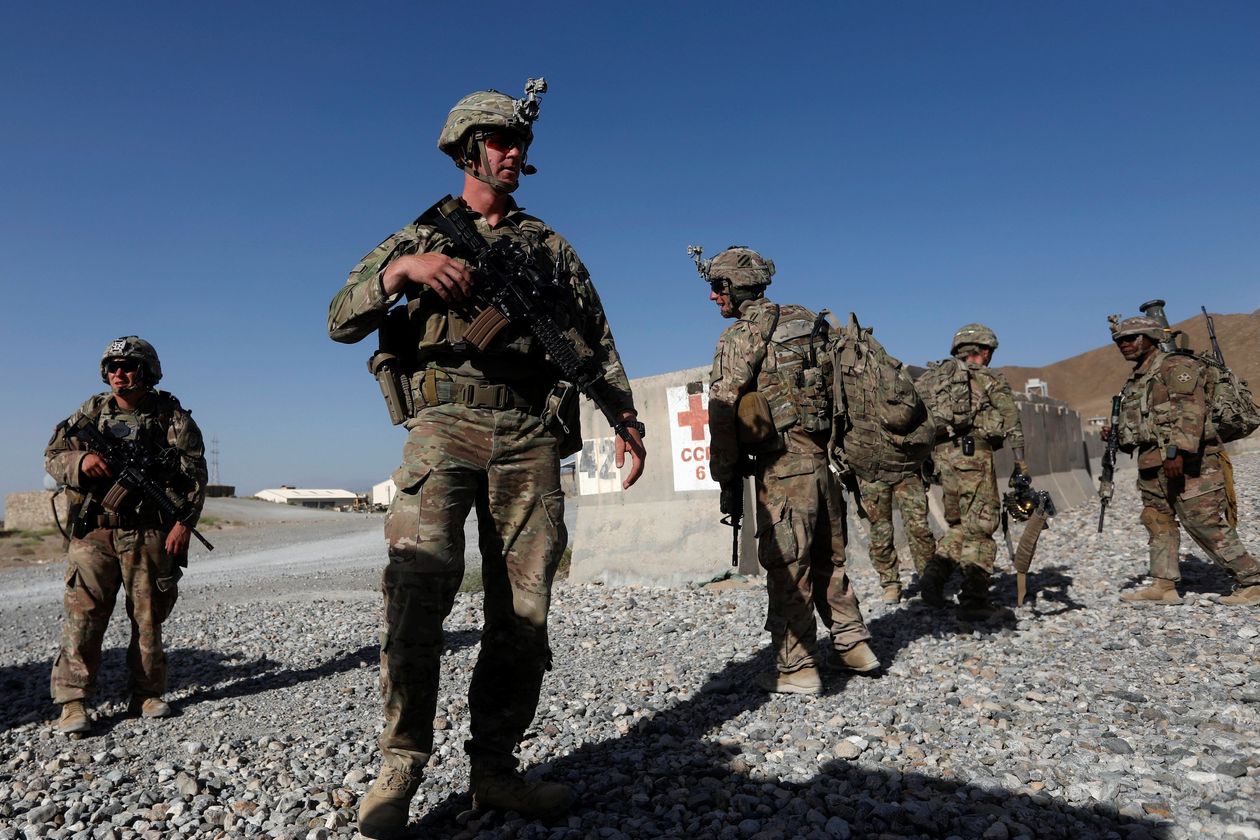By Warren P. Strobel, Godon Lubold, and Lindsay Wise, Wall Street Journal–
Republican and Democratic lawmakers united Monday around demands that the White House detail intelligence indicating Russia had paid bounties to insurgents to have American forces killed in Afghanistan, and explain why President Trump apparently wasn’t briefed on the threat to U.S. troops.
Senior Republicans in Congress, who often are supportive of Mr. Trump, said that even if the intelligence isn’t yet fully verified, it should be taken seriously and the president should have been made aware of it.
“Anything with any hint of credibility that would endanger our service members, much less put a bounty on their lives, to me should have been briefed immediately to the commander in chief and a plan to deal with that situation,” Rep. Mac Thornberry of Texas, the top Republican on the House Armed Services Committee, told reporters Monday.
After attending a briefing on the issue at the White House, Mr. Thornberry and Rep. Liz Cheney (R., Wyo.) said in a statement that they “remain concerned.”
The White House reiterated Monday that neither Mr. Trump nor Vice President Mike Pence were told about the classified information, which assessed that Moscow was offering bounties to kill U.S. service members in Afghanistan, because U.S. intelligence agencies had not reached agreement about the reports’ veracity.
“There is no consensus within the intelligence community on these allegations, and in effect there are dissenting opinions from some in the intelligence community with regards to the veracity of what’s being reported,” White House press secretary Kayleigh McEnany said.
Top military and intelligence officials were scrambling to review the intelligence they had. Some officials said there was no prominent intelligence that showed Russia meddling in Afghanistan; instead, the concerns were about what Russia was doing in places like Libya and Syria, one official said.
Other officials said the intelligence was largely circumstantial, or based on few intelligence sources and thus not definitive enough to raise alarm bells at higher levels. One official said, however, the intelligence was conveyed at high levels within the administration this spring, about the same time the coronavirus crisis gripped the White House.
Ms. McEnany didn’t specify which spy agencies were more skeptical than others of the reported bounties offered by Russia’s GRU intelligence agency—which both Moscow and Taliban militants have denied—or what their level of confidence was in the information. Nor did she answer questions about why, given the potentially explosive nature of the information, Mr. Trump wasn’t briefed on the reports and the differing assessments of them.
Late Monday, the Department of Defense said it is evaluating intelligence about Russian “malign activity against United States and coalition forces in Afghanistan.” While the Pentagon said it had no corroborating evidence, it is concerned about the safety and security of forces in Afghanistan, according to a statement.
Some Republican House members were briefed at the White House Monday afternoon by Director of National Intelligence John Ratcliffe, national security adviser Robert O’Brien and chief of staff Mark Meadows.
Those three officials “informed us there is an ongoing review to determine the accuracy of these reports,” Rep. Michael McCaul (R., Texas) and Rep. Adam Kinzinger (R., Ill.) said in a statement.
Sen. Ben Sasse (R., Neb.) called for Congress to focus on getting information. “No. 1, Who knew what, when?” he said. “And did the commander-in-chief know? And if not, how the hell not? And No. 2, What are we going to do as a proportional cost in response? In a situation like this, that would mean GRU and Taliban body bags.”
Among other Republicans, Sen. Marco Rubio (R., Fla.), chairman of the Senate Intelligence Committee, cautioned against conclusions based on normally nuanced intelligence information. Sen. John Cornyn (R., Texas) said news reports about the intelligence reflected a problem with classified leaks.
A separate briefing for several Democrats was expected to occur early Tuesday, officials said.
Sen. Mark Warner (D., Va.), the top-ranking Democrat on the Senate Intelligence Committee, declined to comment on specific intelligence. “But this constant effort from this administration to kowtow to Putin isn’t in America’s best interest,” he said.
Rep. Elissa Slotkin (D., Mich.), a former CIA analyst and Defense official, said Congress needs to understand exactly what is in the intelligence, and then understand what, if anything, the White House has done about it. “They need to be forthcoming about that,” she said.
In a succession of separate statements late Monday, CIA Director Gina Haspel along with Messrs. Ratcliffe and O’Brien decried leaks about the intelligence reports, while acknowledging they were evaluating threats to U.S. forces.
“When developing intelligence assessments, initial tactical reports often require additional collection and validation,” Ms. Haspel said. “In general, preliminary force protection information is shared throughout the national security community—and with U.S. allies—as part of our ongoing efforts to ensure the safety of coalition forces overseas.”
According to the classified American intelligence assessment, a Russian spy unit paid members of Afghanistan’s Taliban movement to conduct lethal attacks on U.S. and other North Atlantic Treaty Organization troops in Afghanistan, people familiar with the assessment said.
The White House and the Office of the Director of National Intelligence have declined to say whether the reported actions by an arm of Russia’s military intelligence agency, the GRU, were included in written materials prepared for the president, as opposed to in-person briefings.
U.S. spy agencies had differing levels of confidence about one finding in the 2017 intelligence assessment of Russia’s interference in the 2016 presidential election, regarding whether Russian President Vladimir Putin intervened to help Mr. Trump. The full assessment was briefed to both President Barack Obama and President-elect Trump.
Write to Warren P. Strobel at Warren.Strobel@wsj.com, Gordon Lubold at Gordon.Lubold@wsj.com and Lindsay Wise at lindsay.wise@wsj.com


Leave A Comment
You must be logged in to post a comment.